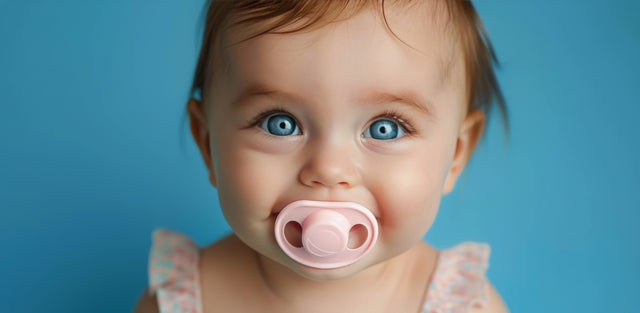
Pacifier Use: A Complete Guide
Share
From the moment a baby is born, there are a variety of opinions about the use of pacifiers. Some parents consider them an indispensable tool for calming their little ones, while others are concerned about their potential negative effects on the child's development. In this blog post, we will explore the topic of pacifier use in depth from an empathetic perspective, offering detailed information and useful tips so that you can make the best decision for your child.
Benefits of using a pacifier:
+ Calm: Pacifiers can be a source of comfort and reassurance for babies, helping them calm down and fall asleep more easily.
+ Reduced risk of sudden infant death syndrome: Studies suggest that using a pacifier during sleep may reduce the risk of sudden infant death syndrome by helping to keep the infant's airway open.
Disadvantages of using a pacifier:
+ Interference with breastfeeding: Prolonged use of pacifiers can interfere with breastfeeding, as it can make it difficult to establish a good sucking technique in the baby.
+ Possible impact on dental alignment: Continuous use of a pacifier for a long time can affect the alignment of the teeth and jaw in the baby.
+ Risk of infections: If the pacifier is not kept clean and is placed in the mouth, there is a risk of introducing bacteria and increasing the possibility of infections.
It is important to consider both the benefits and potential drawbacks of pacifier use to make the best decision for your child.
Whatever your decision, here are some tips for safe pacifier use.
+ Choose a suitable pacifier: Choose one-piece pacifiers, without detachable parts that could pose a choking risk to the baby.
+ Keep it clean: Wash the pacifier with soap and water, and sterilize it periodically to prevent infections.
+ Limit use: Use the pacifier only when necessary to calm the baby, preventing it from becoming a constant dependency.
In summary, pacifiers have both benefits and drawbacks that we must take into account when deciding whether they are suitable for our child. The most important thing is to pay attention to the individual needs of each child and make informed decisions based on their well-being.

